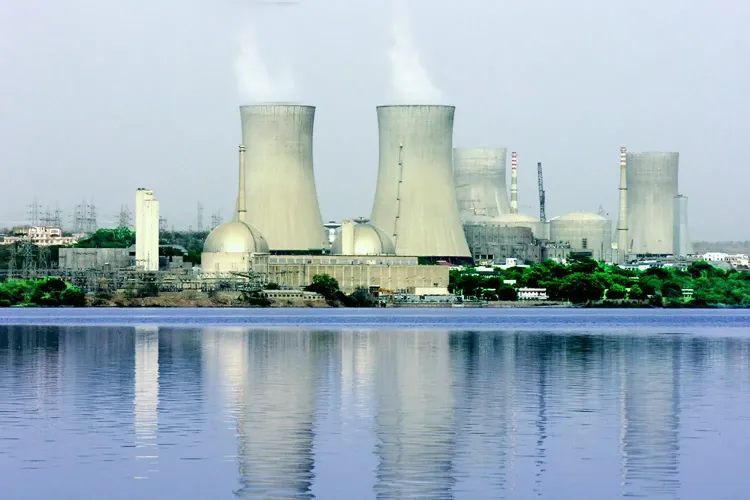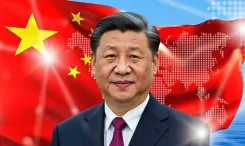Minister Highlights Role of Private Sector and Public Engagement in India's Nuclear Energy Aspirations

Synopsis
Key Takeaways
- Nuclear power is essential for India's Net Zero goal by 2070.
- Annual addition of 4 GW required to reach 100 GW by 2047.
- Legislative reforms are necessary for private sector participation.
- Public engagement is critical for addressing concerns about nuclear energy.
- NPCIL aims to leverage partnerships to meet energy targets.
New Delhi, March 4 (NationPress) Achieving 100 GW of nuclear power by 2047 demands a dedicated and focused strategy, requiring an annual addition of approximately 4 GW from this point forward, stated Union Minister of State (Independent Charge) for Science and Technology, Dr. Jitendra Singh, on Tuesday.
He stressed that nuclear energy is essential for India’s Net Zero target by 2070, advocating for increased participation from the private sector, necessary regulatory reforms, and ongoing public engagement.
During a post-Budget webinar hosted by NITI Aayog, Dr. Singh underscored the vision outlined in the Union Budget 2024-25 for the expansion of India’s nuclear power, which aims to hit a target of 100 GW by 2047.
He pointed out that the demand for energy is projected to rise four to five times by 2047.
Despite the growth of renewable energy sources, they cannot fulfill the base-load demand on their own, making nuclear energy a crucial element of India’s energy plan.
Dr. Singh acknowledged that legislative changes to the Atomic Energy Act, Civil Liability for Nuclear Damage Act, and the Electricity Act would be necessary to facilitate this involvement.
"Opening the nuclear sector will convey a strong policy message to industry stakeholders, enhancing investor confidence and promoting long-term investments," the minister remarked.
Moreover, he pointed out that the Nuclear Power Corporation of India Limited (NPCIL) and its subsidiaries are set to contribute nearly half of the 100 GW target through domestic and international collaborations.
In addition, NTPC’s joint venture, Ashwini, has already initiated the construction of four 700 MWe PHWRs at the Mahi Banswara Rajasthan Atomic Power Plant (MBRAPP).
The minister also discussed the initiation of a Small Modular Reactor (SMR) R&D Mission, aimed at developing five SMRs by 2033. These reactors, known for their flexibility, could be installed in industrial zones, remote locations, and challenging sectors such as cement and steel manufacturing.
Dr. Singh emphasized the importance of a nationwide awareness initiative to alleviate public concerns about nuclear energy.
"A more vigorous and sustained public outreach effort is crucial to dispel fears and promote nuclear power as a safe and clean energy source," he urged, calling for cooperation among government bodies, private enterprises, and environmental organizations.










